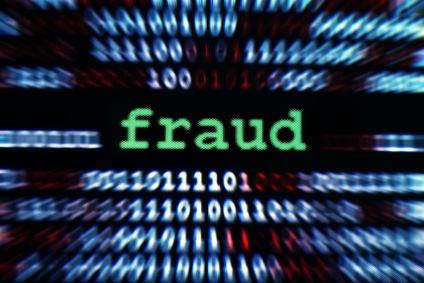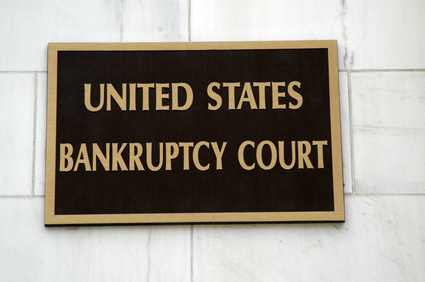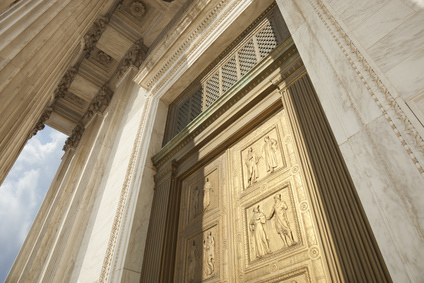Home » Bankruptcy » Page 9
The U.S. Court of Appeals for the Eleventh Circuit recently held that a court cannot extinguish a secured creditor’s state-law security interests for failure to file a proof of claim during the administration of an equity receivership over entities involved in a Ponzi scheme. A copy of the opinion in Securities and Exchange Commission v. Wells Fargo Bank is available at: Link to Opinion. The U.S. Securities and Exchange Commission filed an action seeking the appointment of an equity receiver following the collapse of a Ponzi scheme. The trial court appointed a receiver to “marshal and safeguard” the defendants’ assets…
The Supreme Court of Indiana recently confirmed a mortgagee’s ability to seek an in rem judgment against property for which there was an outstanding lien balance after the borrowers obtained a discharge of their Chapter 7 bankruptcy. In so ruling, the Court distinguished the difference between an in rem and in personam judgment, and rejected the borrowers’ unsupported argument that the debt was paid in full by the time the mortgagee initiated foreclosure proceedings against the borrowers. A copy of the opinion in McCullough v. CitiMortgage, Inc. is available at: Link to Opinion. The borrowers obtained a loan from the…
The U.S. Court of Appeals for the Fifth Circuit recently held that the collection of garnished wages earned during the 90 days prior to the filing of a bankruptcy petition is an avoidable transfer, even if the garnishment was served before the 90-day preference period. The ruling creates a potential split with the Second, Seventh, and Eleventh Circuits, with the Fifth Circuit joining with the Sixth Circuit on the issue. A copy of the opinion in Tower Credit v. Schott is available at: Link to Opinion. A creditor obtained a money judgment in state court against the debtor and served…
The Bankruptcy Appellate Panel for the Eighth Circuit recently held that a secured creditor obtained a valid lien on collateral because technical defects in the bill of sale did not invalidate a transfer of title to the collateral, and rejected the argument that the secured creditor should have inspected the bill of sale before advancing funds. A copy of the opinion in In re Leonard is available at: Link to Opinion. This was a dispute over the validity and priority of interest in collateral in goods. The seller sold the collateral to the debtor, a broker who delivered the collateral…
The U.S. Court of Appeals for the Fourth Circuit recently held that certain deposits and wire transfers into a bankrupt debtor’s personal, unrestricted checking account in the ordinary course of business were not “transfers” under § 101(54) of the Bankruptcy Code, affirming the district court’s and bankruptcy court’s entry of summary judgment in favor of the bank in an adversary proceeding brought by the bankruptcy trustee. A copy of the opinion in Charles Ivey, III v. First Citizens Bank & Trust Company is available at: Link to Opinion. The debtor orchestrated a Ponzi scheme that unraveled in 2009, in which…
The Appellate Court of Illinois, Second District, recently affirmed summary judgment in favor of a mortgagee that failed to meet the FHA requirement to either have a face-to-face meeting with the borrowers or to make “a reasonable effort” to arrange a face-to-face meeting before filing foreclosure, because doing so would have been a futile act after the borrowers’ mortgage loan debt was discharged in bankruptcy and they did not reaffirm the debt. A copy of the opinion in PNC Bank National Ass’n v. Wilson is available at: Link to Opinion. A mortgagee initiated a foreclosure action against borrowers based upon…
The U.S. Court of Appeals for the Sixth Circuit recently held that a bankruptcy trustee seeking to recover fraudulent transfers could recover direct and indirect loan repayments made after the bank had knowledge of the debtor’s Ponzi scheme, but could not recover deposits not applied to pay back the bank’s debt because the bank was not a “transferee” under the Bankruptcy Code as to ordinary bank deposits. A copy of the opinion in Meoli v. The Huntington National Bank is available at: Link to Opinion. The principal of two bankrupt companies orchestrated a Ponzi scheme in which he fabricated invoices…
The United States Bankruptcy Court for the Eastern District of Michigan recently allowed a debtor to modify his confirmed Chapter 13 plan based upon a mistake by the debtor’s counsel. The result of the modification was to reduce the plan to 36 months from 60 and reduce the repayment to unsecured creditors by 80 percent. A copy of In re Luman is available at: Link to Opinion. The debtor identified having total unsecured debt of $84,543.08 and mistakenly proposed a plan to pay these unsecured creditors $5,000 over 60 months. However, the Bankruptcy Code would have required a 36-month plan…
The U.S. Court of Appeals for the Fourth Circuit recently held that “escrow funds, insurance proceeds, or miscellaneous proceeds” are protected by the anti-modification provisions for Chapter 13 bankruptcies as “incidental property” under the definition of “debtor’s principal residence” in the federal Bankruptcy Code. A copy of the opinion in In re Birmingham is available at: Link to Opinion. A debtor filed a voluntary petition for Chapter 13 bankruptcy. One of the claims against the debtor was a mortgage loan secured by a deed of trust on the debtor’s primary residence. When the debtor filed his original Chapter 13 bankruptcy…
The U.S. Supreme Court heard oral argument Tuesday in Midland Funding v. Johnson. A primary issue before the Court is whether the federal Fair Debt Collection Practices Act is violated by the filing in a Chapter 13 bankruptcy case of a proof of claim representing a debt subject to an expired limitations period. The case originated from the Eleventh Circuit Court of Appeals, which along with its earlier decision in Crawford v. LVNV, held the FDCPA is violated in those instances. Every other Circuit Court of Appeals has since found otherwise. The oral argument indicated that at least six justices…
The U.S. Court of Appeals for the First Circuit recently affirmed a bankruptcy court’s ruling that a mortgagee did not violate the discharge injunction in 11 U.S.C. § 524(a) by sending IRS 1099-A forms to borrowers after their discharge, agreeing that the IRS forms were not objectively coercive attempts to collect a debt. A copy of the opinion in Bates v. CitiMortgage, Inc. is available at: Link to Opinion. The borrowers obtained a mortgage loan secured by their home. They filed bankruptcy under Chapter 7 in 2008 and received a discharge of their personal liability for the loan in 2009.…
The U.S. Court of Appeals for the Seventh Circuit recently held that a bank’s lawsuit against the husband of a debtor who had filed for bankruptcy did not violate the co-debtor stay because the husband’s credit card debts were not a consumer debt for which the debtor was personally liable. A copy of the opinion in Smith v. Capital One Bank (USA), NA is available at: Link to Opinion. A debtor filed for bankruptcy in 2011. During the course of the bankruptcy proceedings, a bank filed suit and obtained a judgment against the debtor’s husband on a credit card debt…











